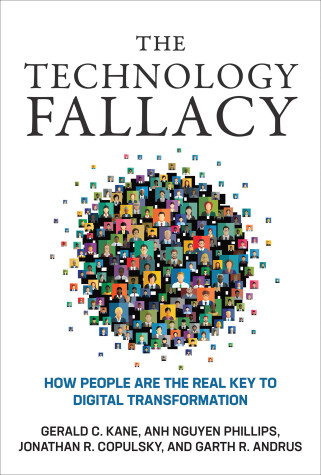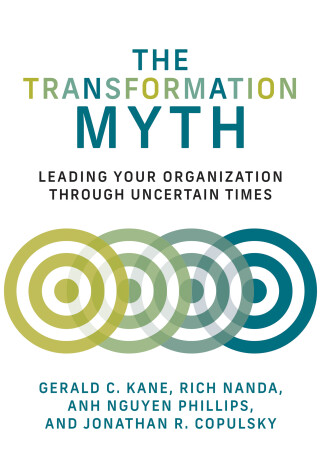Management on the Cutting Edge
2 total works
The Technology Fallacy
by Gerald C. Kane, Anh Nguyen Phillips, Jonathan R Copulsky, and Garth R. Andrus
Digital technologies are disrupting organizations of every size and shape, leaving managers scrambling to find a technology fix that will help their organizations compete. This book offers managers and business leaders a guide for surviving digital disruptions—but it is not a book about technology. It is about the organizational changes required to harness the power of technology. The authors argue that digital disruption is primarily about people and that effective digital transformation involves changes to organizational dynamics and how work gets done. A focus only on selecting and implementing the right digital technologies is not likely to lead to success. The best way to respond to digital disruption is by changing the company culture to be more agile, risk tolerant, and experimental.
The authors draw on four years of research, conducted in partnership with MIT Sloan Management Review and Deloitte, surveying more than 16,000 people and conducting interviews with managers at such companies as Walmart, Google, and Salesforce. They introduce the concept of digital maturity—the ability to take advantage of opportunities offered by the new technology—and address the specifics of digital transformation, including cultivating a digital environment, enabling intentional collaboration, and fostering an experimental mindset. Every organization needs to understand its “digital DNA” in order to stop “doing digital” and start “being digital.”
Digital disruption won't end anytime soon; the average worker will probably experience numerous waves of disruption during the course of a career. The insights offered by The Technology Fallacy will hold true through them all.
A book in the Management on the Cutting Edge series, published in cooperation with MIT Sloan Management Review.
The Transformation Myth
by Gerald C. Kane, Rich Nanda, Anh Nguyen Phillips, and Jonathan R Copulsky
When COVID-19 hit, businesses had to respond almost instantaneously--shifting employees to remote work, repairing broken supply chains, keeping pace with dramatically fluctuating customer demand. They were forced to adapt to a confluence of multiple disruptions inextricably linked to a longer-term, ongoing digital disruption. This book shows that companies that use disruption as an opportunity for innovation emerge from it stronger. Companies that merely attempt to "weather the storm" until things go back to normal (or the next normal), on the other hand, miss an opportunity to thrive.
The authors, all experts on business and technology strategy, show that transformation is not a one-and-done event, but a continuous process of adapting to a volatile and uncertain environment. Drawing on five years of research into digital disruption--including a series of interviews with business leaders conducted during the COVID-19 crisis--they offer a framework for understanding disruption and tools for navigating it. They outline the leadership traits, business principles, technological infrastructure, and organizational building blocks essential for adapting to disruption, with examples from real-world organizations. Technology, they remind readers, is not an end in itself, but enables the capabilities essential for surviving an uncertain future: nimbleness, scalability, stability, and optionality.

